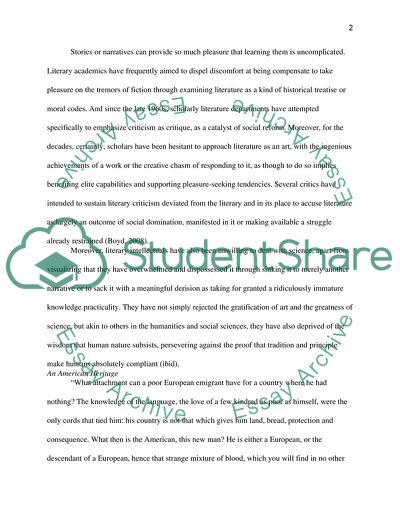The Nature of American Literature Report Example | Topics and Well Written Essays - 1500 words. https://studentshare.org/literature/1716605-nature-of-american-literature
The Nature of American Literature Report Example | Topics and Well Written Essays - 1500 Words. https://studentshare.org/literature/1716605-nature-of-american-literature.


